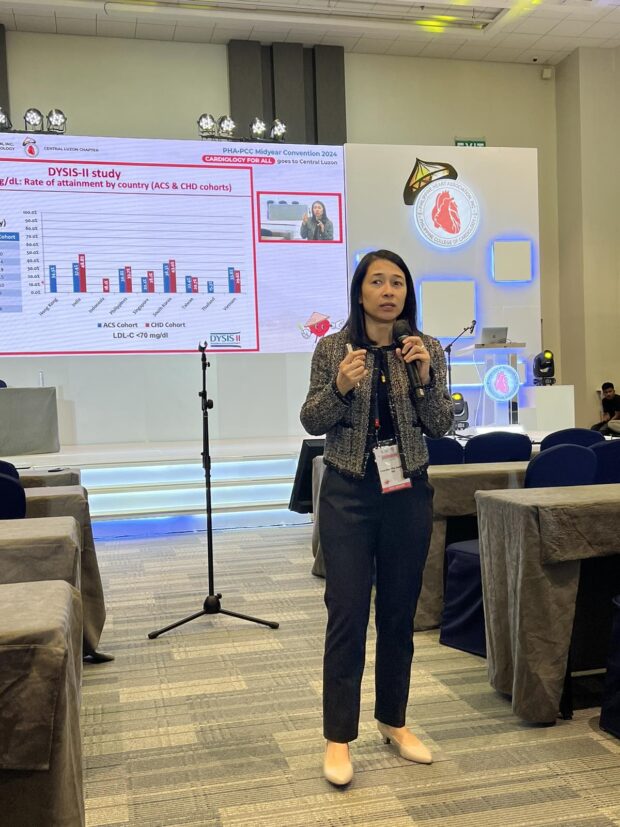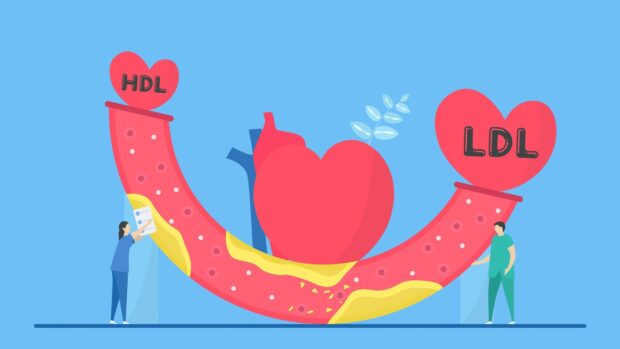Empowering Health: Organon takes enter stage in Dyslipidemia Solutions at PHA-PCC Midyear Convention
This health month, Organon Philippines is committed to creating a patient-centric business, prioritizing early disease detection, influencing the course of healthcare conditions, and contributing to the development of a resilient society where the health of Filipinos is a fundamental focus.
Cholesterol management emerges as a prevalent concern in the Philippines, with high cholesterol levels now identified in individuals as young as 20. The 8th National Nutrition Survey reveals that nearly half of Filipinos aged 20 and above exhibit borderline high cholesterol, signifying a significant, potentially unnoticed health issue affecting one in every two individuals. Specifically, 46.9% of this demographic grapple with this condition.
Highlighting the preventability and treatability of cardiovascular disease, healthcare company Organon Philippines is dedicated to public education and supporting initiatives aimed at updating doctors on the latest clinical practice guidelines for cholesterol management. To further these efforts, Organon actively participated in the recent Philippine Heart Association (PHA) – Philippine College of Cardiology (PCC) Midyear Convention 2024 in Clark, Pampanga. The convention, with a theme “Cardiology for All”, provided valuable insights into recent developments in cardiovascular disease management, featuring expert-led sessions and practical workshops.
One of the key lectures titled “Addressing the Urgency ‘Treat to Goal’ in Dyslipidemia Management”, cardiologist and lipidologist Dr. Lourdes Ella Santos of UP-PGH CSCMC highlighted key findings from RACING Study. This study suggests that among patients with atherosclerotic cardiovascular disease (ASCVD), using a combination of a moderately strong cholesterol-lowering medication with another drug called ezetimibe is just as effective as using a higher dose of statin monotherapy. They found that both approaches were equally effective at preventing serious heart problems like heart attacks, strokes, and cardiovascular-related deaths.
Dyslipidemia characterized by a high level of cholesterol and/or triglycerides or a low level of high-density lipoprotein (HDL) cholesterol, poses a notable risk for heart problems, especially when it comes to keeping LDL-C levels in check to prevent cardiovascular issues. Using statins is a common approach, but it might not always bring LDL-C levels down to the desired target when used alone. Combining statins with ezetimibe improves the effectiveness of lowering lipids. The combination of ezetimibe and rosuvastatin is recommended in studies for a more effective reduction in LDL-C levels and lowering the associated risk of heart-related events compared to using statins alone.
Growing risk of high cholesterol in Filipinos
The impact of this problem is starkly evident in the country’s mortality statistics. Based on the 2022 report by the Philippines Statistics Authority, ischaemic heart disease was the leading cause of death among both men and women in the country. What’s alarming is that younger Filipinos are now being diagnosed with heart disease due to unhealthy lifestyle choices. This is attributed to poor dietary habits such as consuming an excessive amount of food that are high in saturated fats, trans fats, and easily digestible carbohydrates.
The trend of bad cholesterol management in the country worsened when the coronavirus pandemic broke out in 2020. According to Dr. Santos, most people may have overlooked cardiovascular risk factors during the lockdown.
The urgent need to address dyslipidemia
Dyslipidemia is a major risk factor for cardiovascular disease, which is the leading cause of death worldwide. That’s why professionals stand by a simple motto when it comes to LDL-C level management—the lower, the better.
To lower LDL-C levels in very high-risk populations such as the Philippines, a single-pill combination of ezetimibe added to statin-based therapy is being advocated by healthcare professionals to introduce this treatment into their practice. The benefits of single-pill combinations (SPC) for high and very high-risk patients are the following:
- decreasing pill burden and treatment complexity contribute to improvement in treatment exposure.
- provide a strategic approach that allows the intensification of treatment while preserving adherence. In large observational studies, SPCs of ezetimibe/statin were associated with significantly higher odds of high adherence (adherence >75%) than free associations.
- compared with free associations, SPCs have been shown to increase LDL-c target attainment and percentage of patients meeting LDL-C goal.
Dr. Santos also pointed out the benefit of healthcare practitioners nationwide keeping themselves up to date with therapies such as the single-pill combination, which is now becoming a standard of therapy first line. “We want everyone to be comfortable with using single combination therapies even as first line lipid-lowering therapy options.” said Dr. Santos. “As we talked about yesterday, and today, when you have patients that are classified as very high risk, with a 10-year risk of developing a stroke or heart attack that is high, then the recommendation now is to consider starting these patients on single-pill combination therapy off the bat.”
Guidance, early identification, and regular monitoring are essential elements that contribute to successful cholesterol management. It is advisable for all adults to undergo counseling regarding a nutritious diet and lifestyle to mitigate the risk of cardiovascular disease (CVD). Assessing lipid profiles and calculating risks aids in recognizing symptoms of CVD. Those at higher risk for cardiovascular disease should receive guidance on adopting healthier lifestyle and dietary practices to reduce their risk. Moreover, a collaborative decision-making process should be employed to determine the most suitable options for medium-intensity statins, particularly for primary prevention if desired.
ADVT.
Read more stories here:
Empowering Health: Organon takes enter stage in Dyslipidemia Solutions at PHA-PCC Midyear Convention
Watsons is one with loyal shoppers in celebrating ‘Year of the Wood Dragon’

